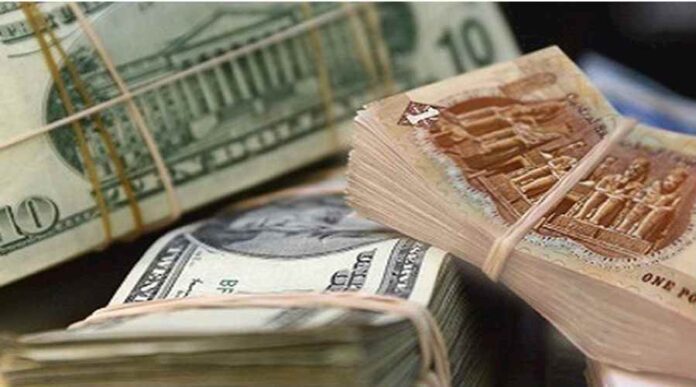The annual inflation rate in Egypt recorded 14.9% last April, hitting its highest rate in 3 years, driven by the government’s decision to devalue the pound against the dollar by 18% in late March and the continuing negative repercussions of the Russian invasion of Ukraine. The figure is consistent with the significant increase in prices, against which the government is paralyzed. Instead, the government made it worse by raising the prices of subsidized food commodities a few days ago, eliciting public indignation.
Uncontrollable increase in food prices
Data issued by the Central Agency for Public Mobilization and Statistics showed that the food and beverage group topped the various spending groups in a price change. It rose last April by 29.3% compared to April 2021. This group represents the most significant relative weight in the consumption basket on which the inflation rate is based in Egypt. Vegetables ranked first to increase their prices for all food commodities, rising by 66.2%. However, they are supposed to be among the least expensive food items due to Egypt’s self-sufficiency in general. In terms of agricultural conditions, the current time in April and May is suitable for generally low vegetable prices, not high.
Nader Nour El-Din, Professor of Water Resources at Cairo University, explained the reasons for the crazy rise in the prices of vegetables, firstly by increasing the demand for them as an alternative to other food items whose prices have risen for reasons related to import conditions and the repercussions of the Russian-Ukrainian war and secondly because of the increase in demand in general related to the month of Ramadan and the preparations for it. Among the food commodities whose prices increased: oils by 36.6%, cereals and bread by 28.5%, fish and seafood by 24.4%, meat and poultry by 22.3%, dairy, cheese and eggs by 22.1%, and fruits by 19.4%.
Many spending groups also recorded increases, as education costs increased by 13.9%, culture and entertainment costs increased by 30.1%, restaurants and hotels increased by 13.8%, and housing, water, electricity, gas and fuel costs increased by 6%. In comparison, health care costs increased By 4.5%.
Expectations of an interest rate hike
Financial companies, banks and analysts expected that the record-high inflation rate would contribute to the Central Bank of Egypt (CBE) decision to raise the interest rate by rates ranging between 0.5 and 2% during the next meeting of the Monetary Policy Committee on May 19, significantly since the inflation rate in this way has dramatically exceeded the Central Bank’s targets (7%, plus or minus 2%). CBE suddenly raised the interest rate by 1% in an extraordinary meeting on March 21 to reach 9.25% for deposits and 10.25% for lending. The National Bank of Egypt and the State Banks of Egypt began offering a high-return savings certificate of 18% on the same day.
Radwa El-Swaify, Head of Research at Al-Ahly Pharos Securities Brokerage Company, expects the Central Bank to raise interest rates by 2% during its next meeting to contain inflation trends and consider interest rate trends within emerging markets in light of monetary tightening trends in the global level. Naeem Securities expected that CBE would raise interest rates by 1% during its next meeting, with actual interest rates (the difference between interest and inflation) turning negative, and inflation is likely to remain high in the near term. The company explained that with the latest inflation reading, the actual returns in Egypt (after taxes) turned negative for treasury bills and treasury bonds in the local currency, which makes Egyptian debt instruments unattractive to foreign investors.
Societal suffering
The Egyptian citizen currently stands unaware of what is happening around him. He knows that he cannot meet the needs of his home and children in light of the skyrocketing prices and that his modest salary is not enough for anything. The rise in prices is the talk of people and their preoccupation with homes, cafes, transportation and social media platforms; Everyone is Yan. Even the middle classes find themselves forced to save their expenses and limit their consumption to meet these successive increases in the prices of goods and services.
As for the government, it stands by and watches all these price hikes and says that what is essential is the “availability of goods” even if at high prices, but it does not answer what the 30 million citizens do below the poverty line (according to official figures) to live? In the end, the citizen remains the victim.









